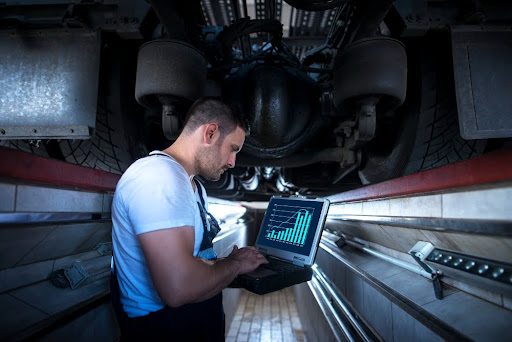In an era characterized by rapid technological advancements, the automotive industry has witnessed a significant transformation.
Gone are the days when vehicle performance tuning required physical presence in a garage or workshop.
Today, with the advent of remote vehicle performance tuning, automotive enthusiasts and professionals alike can fine-tune vehicles from a distance, leveraging cutting-edge technology to optimize performance parameters.
This article explores the concept of remote vehicle performance tuning, its benefits, challenges, and the future implications it holds for the automotive industry.
Understanding Remote Vehicle Performance Tuning
Remote vehicle performance tuning, also known as remote engine tuning or remote ECU (Engine Control Unit) tuning, involves making adjustments to a vehicle’s engine management system from a remote location using specialized software and communication protocols.
Traditionally, performance tuning required physical access to the vehicle’s ECU, necessitating hands-on adjustments by skilled technicians or tuners.
However, remote tuning eliminates the need for proximity, allowing tuners to access and modify the ECU parameters from anywhere with an internet connection.
The process typically involves connecting to the vehicle’s ECU through a dedicated interface, such as an OBD-II (On-Board Diagnostics) port or a proprietary connector, using a laptop or a smartphone.
Once connected, the tuner gains access to the ECU’s software, enabling adjustments to various parameters such as fuel delivery, ignition timing, turbo boost levels, and transmission settings.
These adjustments are tailored to enhance performance, optimize fuel efficiency, and improve drivability based on the specific requirements of the vehicle and the preferences of the owner.
Benefits of Remote Vehicle Performance Tuning
The adoption of remote vehicle performance tuning offers several benefits for both vehicle owners and tuning professionals:
- Convenience: Remote tuning eliminates the need for physical presence, allowing vehicle owners to have their cars tuned from the comfort of their homes or offices.
This convenience saves time and eliminates the hassle associated with scheduling appointments and traveling to tuning shops.
- Access to Expertise: Remote tuning enables vehicle owners to access the expertise of skilled tuners and specialists from around the world, regardless of geographical location.
This access to a broader pool of talent ensures that vehicles are tuned by experienced professionals, resulting in optimal performance and reliability.
- Real-Time Monitoring: Remote tuning platforms often include features that allow tuners to monitor vehicle performance in real-time and make adjustments on the fly.
This capability enables fine-tuning based on data collected during actual driving conditions, ensuring precise optimization under various operating conditions.
- Cost-Effectiveness: Remote tuning can be more cost-effective compared to traditional tuning methods, as it eliminates overhead costs associated with maintaining physical tuning facilities.
Additionally, remote tuning allows for faster turnaround times, reducing labor costs and minimizing downtime for vehicle owners.
- Customization: Remote tuning offers unparalleled flexibility in customizing vehicle performance to meet the specific needs and preferences of owners.
Whether it’s achieving maximum power output on the track or improving fuel efficiency for daily commuting, remote tuning allows for tailored adjustments to suit individual requirements.
Challenges and Considerations
While remote vehicle performance tuning offers numerous benefits, it also presents certain challenges and considerations that need to be addressed:
- Security Concerns: Remote access to a vehicle’s ECU raises concerns about cybersecurity and data privacy.
Hackers could potentially exploit vulnerabilities in remote tuning platforms to gain unauthorized access to vehicles, posing risks to safety and security.
- Reliability and Stability: Remote tuning relies heavily on stable internet connectivity and robust communication protocols to ensure reliable operation.
Any disruptions or latency issues during the tuning process could result in incomplete or erroneous adjustments, affecting vehicle performance and drivability.
- Compatibility and Integration: Not all vehicles are compatible with remote tuning platforms, especially older models or vehicles with proprietary ECU systems.
Ensuring compatibility and seamless integration with a wide range of vehicle makes and models remains a challenge for remote tuning providers.
- Legal and Regulatory Compliance: Remote tuning may raise legal and regulatory concerns, particularly in jurisdictions where vehicle modifications are subject to strict regulations.
Tuning procedures must comply with relevant laws and standards to ensure legality and avoid potential liabilities for vehicle owners and tuners.
Future Implications and Innovations
Despite these challenges, the future of remote vehicle performance tuning appears promising, driven by ongoing advancements in automotive technology and digital connectivity. Some notable trends and innovations shaping the future of remote tuning include:
- AI-Powered Tuning Algorithms: Integration of artificial intelligence (AI) and machine learning algorithms into remote tuning platforms enables automated optimization of vehicle parameters based on real-time data analysis.
These AI-driven tuning solutions offer enhanced precision and efficiency, making performance tuning more accessible to a wider audience.
- Over-the-Air (OTA) Updates: The emergence of OTA update capabilities in modern vehicles allows manufacturers to remotely deliver software updates and performance enhancements directly to the vehicle’s ECU.
This capability streamlines the tuning process, eliminating the need for external tuning devices and enabling seamless integration with the vehicle’s onboard systems.
- Cloud-Based Tuning Platforms: Cloud-based tuning platforms leverage cloud infrastructure to provide scalable and secure remote tuning services.
These platforms offer centralized management of tuning profiles, data storage, and collaboration tools, facilitating seamless communication between vehicle owners, tuners, and manufacturers.
Conclusion
Remote vehicle performance tuning represents a paradigm shift in the automotive industry, offering unprecedented convenience, accessibility, and customization options for vehicle owners and tuning professionals.
While challenges such as cybersecurity, compatibility, and regulatory compliance persist, ongoing innovations in technology and connectivity are driving the evolution of remote tuning solutions.
As automotive enthusiasts embrace the possibilities of fine-tuning at a distance, the future holds immense potential for further advancements in remote vehicle performance tuning, shaping the driving experience of tomorrow.


